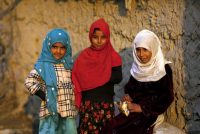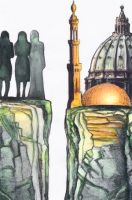
La primera rabina española: un triunfo del igualitarismo religioso
Irene Muzás Calpe ha sido la primera española ordenada rabina (por la Escuela Rabínica Zacharias Frankel, en Alemania, el pasado domingo 23 de octubre).
Es un hito para el judaísmo español por dos motivos. Primero, porque Irene Muzás forma parte del llamado judaísmo masortí, que es igualitario, plural e inclusivo. Y, segundo, porque devuelve a España su protagonismo en la historia judía.
La presencia judía en la península ibérica se remonta al siglo II d.C. y florece dando grandes frutos en forma de filósofos y poetas como Ibn Gabirol e Ibn Nagrela, traductores como Ibn Tibón, prominentes rabinos como El Rambam o cabalistas como Moisés de León.… Seguir leyendo »





